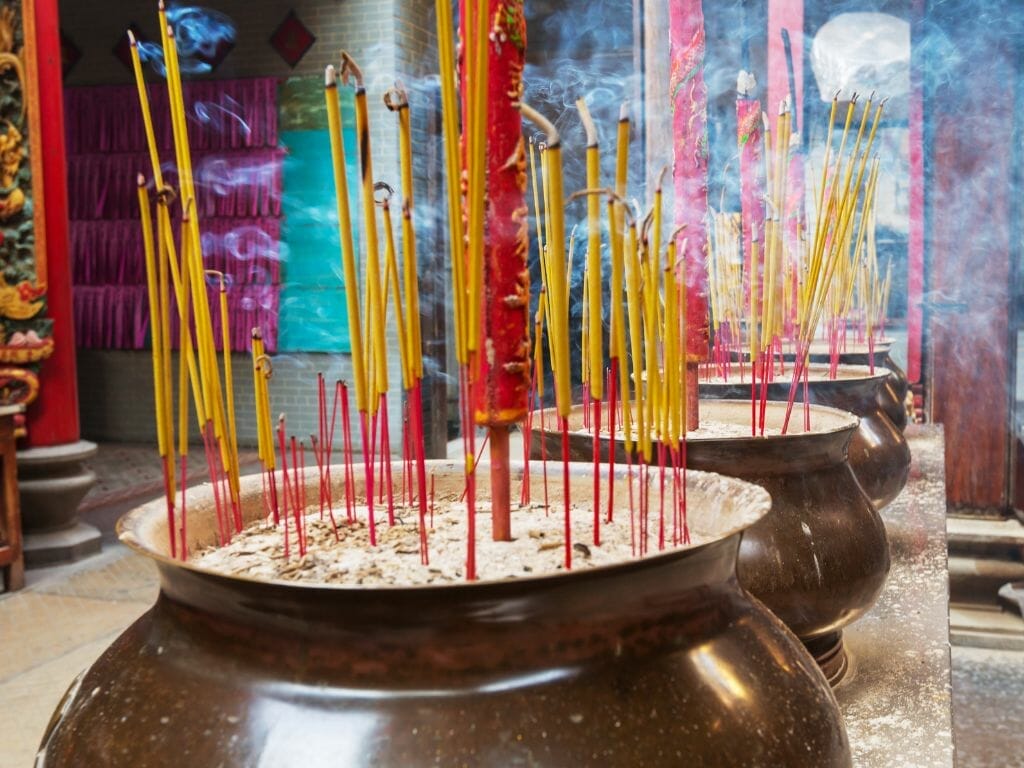10 Unusual Facts About Singaporean Superstitions and Beliefs

No Time to Read? Here’s a Snappy Summary of This Article
- The Mystical Power of Feng Shui: Singaporeans consult Feng Shui masters to arrange their homes for wealth and prosperity.
- The Fear of the Number 4: Tetraphobia runs deep; many avoid the number 4 due to its phonetic similarity to “death.”
- The Ghost Month Tradition: It is believed that the gates of hell open and the spirits of the dead are free to roam the earth.
- The Superstition Surrounding Colors: Colors carry significant meaning in Singaporean culture.
- The Practice of Palmistry: The art of reading one’s palm to predict their future
- The Role of Zodiac Signs: Singaporeans eagerly read their horoscopes and consult astrologers for guidance.
Table of Contents
- No Time to Read? Here’s a Snappy Summary of This Article
- Fact 1: The Belief in Feng Shui
- Fact 2: The Ghost Month Tradition
- Fact 3: The Significance of Number 4
- Fact 4: The Superstition Surrounding Colors
- Fact 5: The Practice of Palmistry
- Fact 6: The Obsession with Lucky Charms
- Fact 7: The Ritual of Crossing Bridges Backwards
- Fact 8: The Role of Zodiac Signs
- Fact 9: The Belief in Hantu Spirits
- Fact 10: The Taboos Surrounding Pointing Feet
- Meanwhile, Check Out Tropika Club’s Ecosystem of Websites
Introduction
Explore 10 intriguing facts about Singaporean superstitions and beliefs in this enlightening article. From ghost stories to lucky numbers, discover the cultural tapestry that shapes the beliefs of Singaporeans.
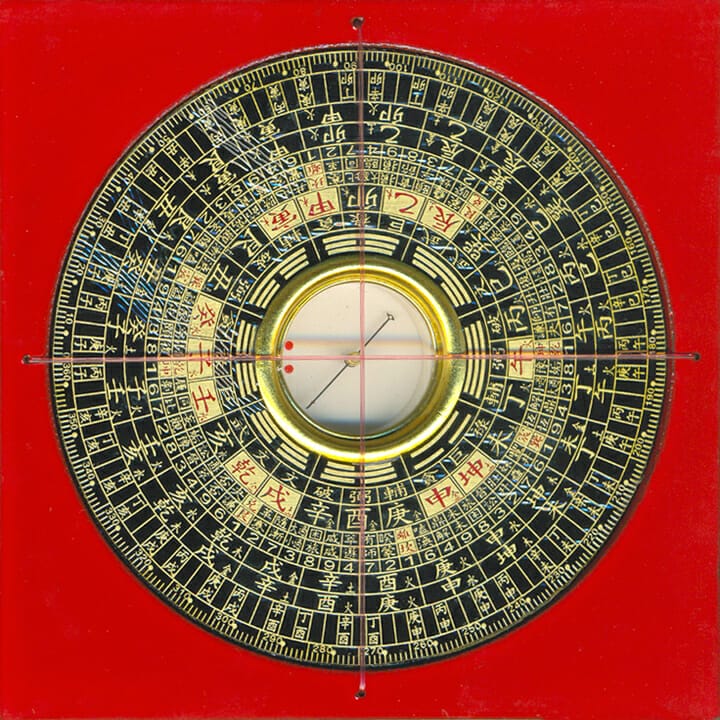
Fact 1: The Belief in Feng Shui
Feng Shui, the ancient Chinese art of harmonizing one’s environment, is deeply ingrained in Singaporean culture. From arranging furniture to selecting auspicious dates, many Singaporeans consult Feng Shui masters to ensure positive energy flows in their homes and businesses.
The belief in balance and prosperity is rooted in the Chinese philosophy of Taoism, which teaches that everything in the universe is interconnected. Feng Shui practitioners believe that by arranging objects and spaces in a certain way, they can create a flow of positive energy, or chi, that can bring good luck, health, and wealth.
Fact 2: The Ghost Month Tradition
The seventh month of the lunar calendar is known as the Hungry Ghost Month in Singapore. During this time, it is believed that the gates of hell open and the spirits of the dead are free to roam the earth. To appease these spirits, Singaporeans make offerings of food, incense, and paper money at makeshift altars. They also hold getai (Chinese opera) performances and other events to entertain the spirits.
The Hungry Ghost Month is a time for Singaporeans to pay homage to their ancestors and to remember those who have passed away. It is also a time to strengthen family ties and to pray for the well-being of loved ones, both living and dead. The festival is a unique blend of superstition and cultural reverence, and it highlights the importance of family in Singaporean society.”
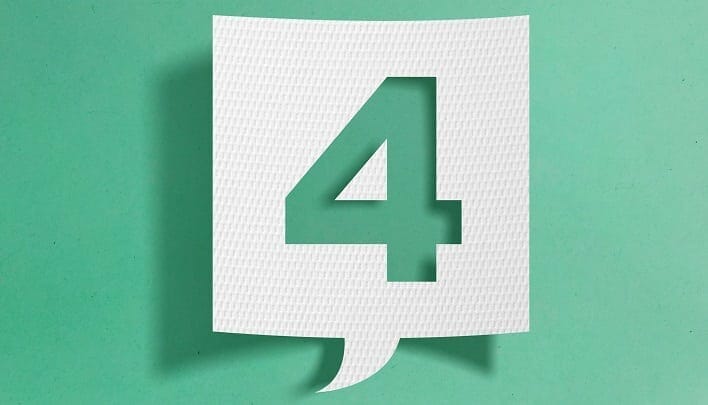
Fact 3: The Significance of Number 4
In Singapore, the number 4 is often considered unlucky because the Mandarin Chinese word for “”four”” (四, sì) sounds similar to the word for “”death”” (死, sǐ). This superstition is rooted in Chinese numerology, which assigns numerical values to letters and words. The number 4 is considered unlucky because it is associated with negative meanings such as death, illness, and misfortune.
As a result of this superstition, you will find that many buildings and apartments in Singapore omit the fourth floor. In some cases, the fourth floor may be renamed as the “”F”” floor, or it may be skipped altogether. This is also true for other numbers that sound similar to the word for “”death”” in Chinese, such as 14 (十四, shí sì) and 24 (二十四, èr sì).
In addition to buildings and apartments, some people in Singapore also avoid using the number 4 in other contexts, such as license plates and phone numbers. They believe that doing so will bring them bad luck. This aversion to the number 4 is a testament to the enduring influence of Chinese superstitions in Singapore.
It is important to note that not everyone in Singapore believes in the superstition surrounding the number 4. However, the superstition is still widespread enough that it has a significant impact on the way people live and work. For example, businesses may avoid using the number 4 in their marketing materials, and people may be reluctant to move into a building that has a fourth floor.
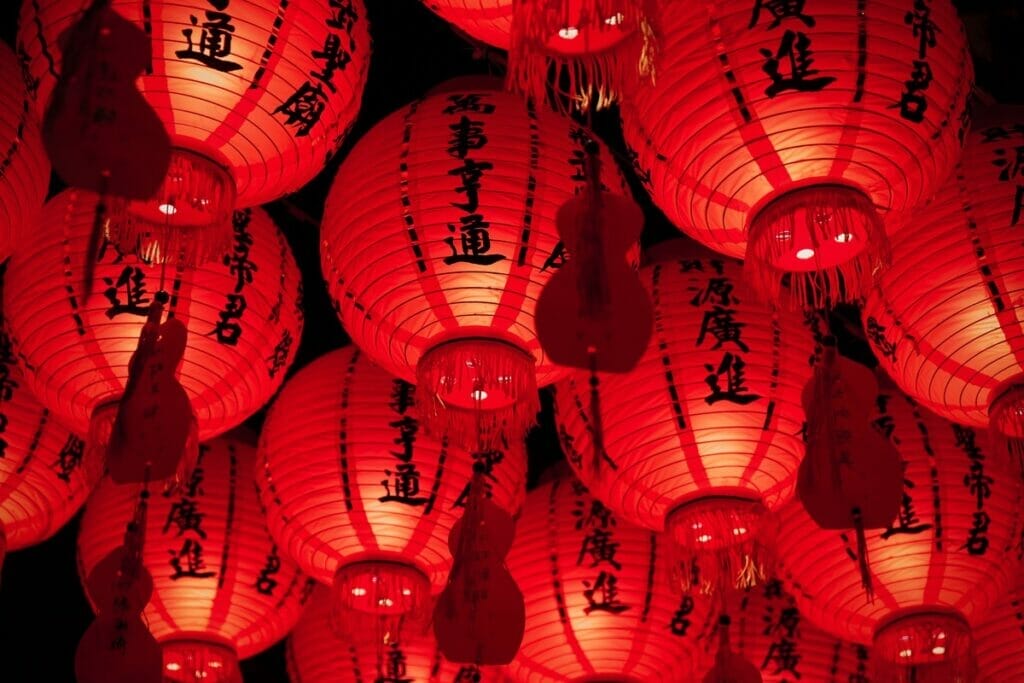
Fact 4: The Superstition Surrounding Colors
Colors carry significant meaning in Singaporean culture. Red is associated with luck and prosperity, making it a common choice for festive decorations. Conversely, white is linked to mourning and is worn at funerals. The careful selection of colors reflects the belief that one’s surroundings can impact their fortune and well-being.
Fact 5: The Practice of Palmistry
Palmistry, the art of reading one’s palm to predict their future, has a dedicated following in Singapore. Many seek the guidance of palm readers to gain insights into their life paths. Whether it’s for career choices or matters of the heart, palmistry remains a popular and intriguing aspect of local superstition.
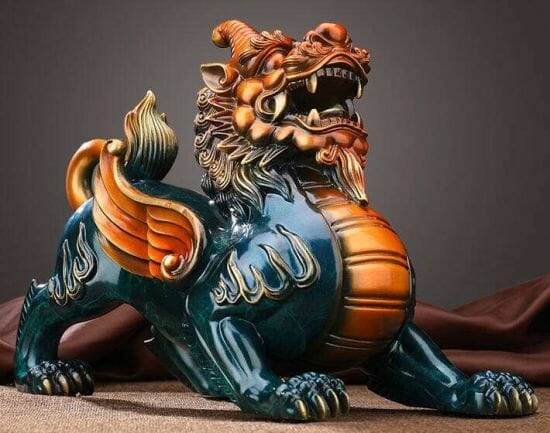
Fact 6: The Obsession with Lucky Charms
Amulets and talismans are cherished by Singaporeans as powerful protectors against evil spirits and misfortune. The Pixiu, a mythical creature with the head of a dragon and the body of a lion, is a coveted charm believed to attract wealth and prosperity. It is often depicted with its mouth open, to symbolize its ability to swallow all obstacles in its path. Other popular amulets include the red string bracelet, which is said to ward off evil spirits and bring good luck, and the jade pendant, which is believed to promote health and well-being.
The love for these charms reflects the desire of Singaporeans for positivity and fortune. In a fast-paced and ever-changing city, many people find comfort in the belief that these charms can protect them from harm and help them achieve their goals. The amulets and talismans are also seen as a way to connect with their cultural heritage and traditions.
_
Read Also:
Top 10 Best Fengshui Consultancies in Singapore
_

Fact 7: The Ritual of Crossing Bridges Backwards
Crossing a bridge backward is a curious superstition in Singapore. It is believed to ward off bad luck and evil spirits. This act is often practiced when visiting temples or crossing rivers. While it may seem unusual, it is a testament to the lengths Singaporeans will go to protect themselves from misfortune.
The belief that crossing a bridge backward can ward off bad luck is thought to have originated from Chinese folk religion. In Chinese culture, bridges are seen as gateways between different worlds, and crossing one backward is said to confuse the spirits and prevent them from following you. This belief is also found in other cultures, such as Japan and Korea.
In Singapore, the superstition of crossing a bridge backward is still widely practiced, especially among older generations. It is not uncommon to see people crossing bridges backward, especially when they are visiting temples or crossing rivers. While some people may scoff at this superstition, others believe that it is better to be safe than sorry.
Whether or not you believe in the superstition, it is an interesting cultural practice that reflects the rich history and traditions of Singapore. So, the next time you are in Singapore and you see someone crossing a bridge backward, don’t be too surprised. They may just be trying to ward off bad luck.

Fact 8: The Role of Zodiac Signs
Zodiac signs hold great importance in Singaporean culture, especially during Chinese New Year. People eagerly read their horoscopes and consult astrologers for guidance. The Year of the Rat, Ox, or Tiger carries specific attributes and predictions, influencing major life decisions. It’s a fascinating blend of tradition and belief in the power of the stars.
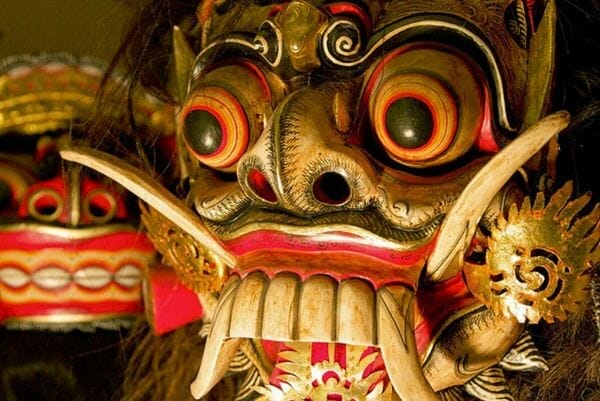
Fact 9: The Belief in Hantu Spirits
Hantu, or spirits, play a significant role in Singaporean folklore. From the Pontianak, a female vampire-like ghost, to the Toyol, a mischievous child spirit, these supernatural entities are woven into the fabric of local superstitions. Many Singaporeans avoid certain places or practices to avoid encounters with these spectral beings.
Fact 10: The Taboos Surrounding Pointing Feet
In Singaporean culture, it’s considered disrespectful to point your feet at others or religious altars. This superstition stems from the belief that the feet are the lowest and dirtiest part of the body, and showing them in such a manner is offensive. To show respect, one should sit cross-legged or tuck their feet under them when sitting in public spaces.
Conclusion
Singaporean superstitions and beliefs are a testament to the rich tapestry of this multicultural society. From Feng Shui to the Ghost Month tradition, these practices reveal the deep-rooted connection between culture, spirituality, and everyday life. While the city thrives in modernity, its traditions remain a source of fascination and reverence.

Frequently Asked Questions (FAQ)
Q: What are some of the superstitions and beliefs in Singapore?
A: Singapore is a multicultural and multiracial country, where people from different backgrounds and religions coexist peacefully. However, that doesn’t mean that everyone shares the same beliefs and values. In fact, Singaporeans have their own unique superstitions and customs that reflect their history, culture and identity. Some of these may seem strange or funny to outsiders, but they are actually part of the rich and diverse heritage of Singapore.
Q: Why do Singaporeans avoid 13 and 4?
A: 13 is considered unlucky in Singapore, especially on Fridays and some other days. Some people believe that 13 represents death or bad luck, while 4 sounds like “death” in Mandarin. Others think that 13 is associated with the number of days in a month, while 4 is the number of strokes in the word “death”.
Q: How do Singaporeans respect the Moon Goddess Chang’e?
A: The Moon Goddess Chang’e is revered in Chinese culture, but pointing at her symbolizes disrespect or arrogance. It may also cause bad luck or cut off ears, as some people believe that pointing at anything can attract unwanted attention from spirits or gods.
Q: How do Singaporeans deal with wandering spirits?
A: Wandering spirits are believed to be restless souls who have not found peace or rest in the afterlife. They may cause harm or mischief to living beings if they are not appeased or banished. Some ways to deal with wandering spirits include burning incense, lighting candles, placing talismans or charms, or seeking help from bomohs (traditional healers).
Q: What are some of the rituals and beliefs of the Indian community?
A: The Indian community retains customs like lighting oil lamps to fend off evil and encourage good. Astrology, also known as “Jyotish,” is a discipline that has a strong influence on important life decisions including marriage and occupation. Using talismans and rituals, the “evil eye,” also known as “Nazar,” is protected.
Q: How do Singaporeans practice Feng Shui in their homes and offices?
A: Feng Shui is an ancient Chinese concept that aims to create harmony and balance between people and nature. It involves selecting auspicious directions, colors, furniture, plants, and other elements to enhance one’s well-being and prosperity.
Q: What are some of the Peranakan beliefs?
A: The Peranakan population, a blend of Chinese and Malay cultures, has customs such as refraining from singing at night to ward off ill luck and not pointing at the moon to avoid cutting one’s ear. Additionally, their exquisite ceramics and beading have significant meanings.
Q: How do Singaporeans respect ghosts and ancestors?
A: Numerous cultures in Singapore uphold a veneration for ghosts and ancestors, including those of the Chinese, Malay, and Indian descent. During numerous ceremonies and festivals, offerings of food, incense, and other things are made to please and respect these beings.
Q: What are some other number taboos in Singapore?
A: Various cultures have various interpretations of which numbers are unlucky. Consider the number 8 , which is connected to prosperity because it sounds like “wealth” in Mandarin , but also associated with death because it looks like an inverted cross . Consider also the number 666 , which is considered evil because it resembles the number of the beast in Revelation .

Have an Article to Suggest?
Tropika Club is always looking for new and exciting content to feature in their magazine and they value the input of our readers. If you have any noteworthy content or articles that you believe would be a great addition to Tropika Club’s magazine, we are open to suggestions and encourage you to reach out to us via email at [email protected]. By doing so, Tropika Club values your expertise and knowledge in the matter and appreciates your willingness to help. We will review your recommendations and update our list accordingly
Meanwhile, Check Out Tropika Club’s Ecosystem of Websites

Tropika Club Magazine – Tropika Club Magazine is a Singapore-based publication that features articles on a wide range of topics with a focus on local businesses and content for the region. The magazine emphasizes supporting local businesses through its #SupportLocal initiative, which includes coverage of everything from neighborhood hawker stalls to aesthetic clinics in town. In addition to highlighting local businesses, Tropika Club Magazine also covers a variety of local content, including beauty, lifestyle, places, eats, and what’s on in Singapore and the Asia Pacific region.
Tropika Club Deals – Tropika Club Deals is a leading online deals and voucher shopping site in Singapore, offering amazing discounts on beauty, wellness, and fitness products and services. It’s the perfect platform for customers who want to discover the best deals without having to commit to a specific appointment date and time. These deals are available at major beauty stores, facial salons, hair salons, and other brands in Singapore, with no minimum spend required. Choose from guaranteed discounted deals in the categories of hairstyling, hair removal, facial & aesthetics, body slimming, brows & lashes, nails & makeup, massage & spa or fitness & wellness. Tropika Club Deals is also ideal for customers who want to buy vouchers as gifts or to use for the future. So whether you’re looking to save money on your next haircut or want to treat yourself to a relaxing massage, Tropika Club Deals has got you covered with the best voucher and coupon deals in Singapore!



